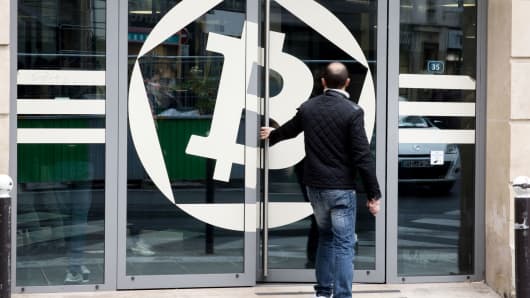A few nights ago I got a phone call from the mother of one of my son's friends. She is a child psychologist, and her husband works in IT for a major bank.
She had been discussing cryptocurrencies with her husband, and they decided it might be a good idea to consult with me before taking a flier on one or two of the lesser known cryptos that had not yet rallied as much as bitcoin, bitcoin cash, litecoin or ethereum.
I expressed my long-held concerns about this "asset class" and suggested that if they decided to invest (speculate) in the one or two they were exploring that they should do it with money they could afford to lose.
I looked at the two they were thinking of getting into, took $5,000 and decided that, what the hell, I probably should take a swing myself, knowing a few people personally who have made a fortune in bitcoin.
The two currencies I examined were priced in the pennies. I thought if I bought one of the least expensive offerings, I could control 50,000 coins. If it were simply to rise to $100 per coin, I'd gross $5 million. A king's ransom for a few days', weeks', months' or even a year's work.
Then I thought a little more. Having failed to make a Rip Van Winklevoss billion, as I slept through bitcoin's 10-year rally, I surmised that such a purchase on my part would absolutely mark a top in the cryptocurrency craze.
I've seen this movie before. At the height of the internet bubble, some of my colleagues and I were trying to decide if we should remain as business journalists on cable television, or join some of our colleagues in start-up dot.com ventures that focused on web-delivered business news.
Thankfully, many of us were bound to contracts and couldn't simply leave our posts to join the young and restless.
One of our colleagues, from another service, had joined a start-up business site and was worth $9 million the very first day that dotcom went public.
When he left a couple years later, that $9 million was worth about $100,000. In the interim, we had kept our jobs, gotten raises and bonuses and, most important, had dodged a bullet that all but killed those who ran to make their instant fortunes.
As I write this, bitcoin has gone through its fifth 30-plus-percent correction this year. While prices remain fluid, the main cryptocurrency has lost as much as 45 percent of its value this week alone.
In the "old days" we'd call that a crash.
The key question, now that we know that litecoin's founder dumped his whole stash; now that futures have made the price of bitcoin move in more than one direction; and now that the margin buyer has entered the market, is whether the bubble has burst, or if this is just the big pause that refreshes.
Certainly, the underlying blockchain technology is not only disruptive to financial systems, but also likely a transformational technology that will radically alter the speed, efficiency, cost and transparency around all manner of financial transactions.
But will cryptocurrencies themselves be a required component of this new functionality? The Federal Reserve and the Treasury can borrow the technology to create "digital dollars," which have all the attendant prerequisites to be considered legal tender.
As yet, bitcoin and other cryptos lack the three defining characteristics of money: a unit of account; a medium of exchange, and a storehouse of value.
Cryptocurrency enthusiasts argued that bitcoin and the like, at the very least, represented the latter, calling bitcoin "millennial gold."
Even that barbarous relic has had its share of speculative episodes, the most memorable in the 1970s and early '80s and then again in the mid-2000s.
Nothing goes up forever. Trees don't grow to the sky, as they say on Wall Street. And the last person into a speculative frenzy never gets out before it's too late.
Happily, I followed my own advice and didn't play this late in the game. I'm certainly more than a little miffed that I didn't follow the lead of one of my friends who bought bitcoin at $300.
However, I'm also happy that I didn't follow another friend who got to the party just as the punch bowl was taken away.



